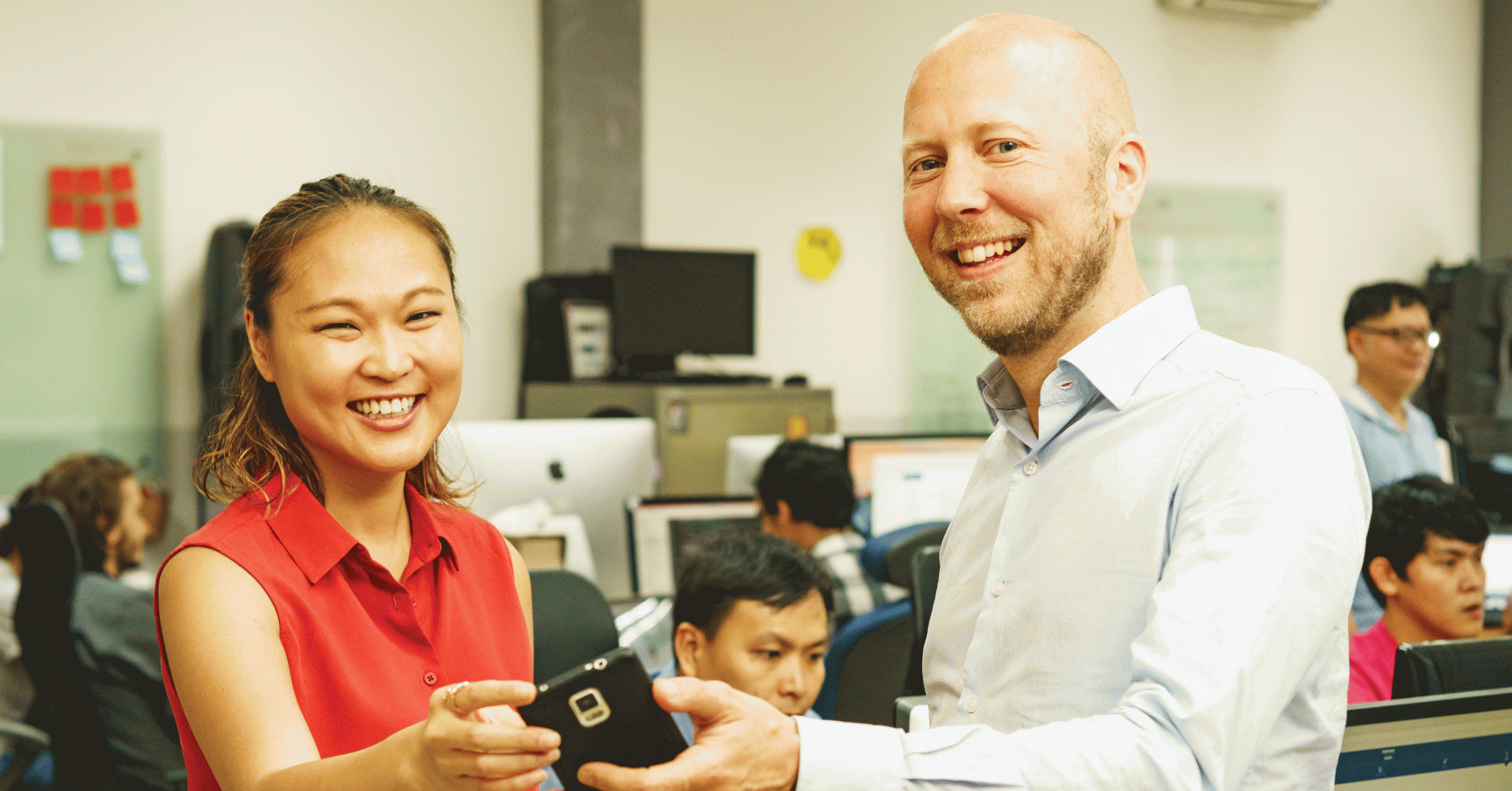DMI’s chief innovation officer Magnus Jern discusses how the mobile tech industry has transformed day-to-day life in the Kingdom

This article was published in the August edition of Southeast Asia Globe magazine. For full access, subscribe here.
What have been the most significant changes in Cambodia’s mobile technology sector?
Three or four years ago we started to see more demand here from telcom operators and from the banks. They realised that development is just one part – you can find engineers, but that’s not everything, because what you really need is good businesspeople as well to take the lead on how you understand the problems that you have to solve for a business. If you actually want to do something that’s easy to use for anyone, for people that maybe can’t read or write or are not that savvy in technology, then you really need to think about the customer experience and the user experience.
What kind of appetite is there among Cambodia’s young people for greater vocational education in these skills?
It’s never been hard for us to get people to apply for these roles. It’s also about training the organisations that we work with to understand more human-centric design. We see this even with websites – the first thing they do is say: ‘OK, what content-management tool are we going to work with, what kind of development do we need?’ And actually that’s usually not really what you need to think about. It’s what problem is our website really going to solve?
Could you talk about the impact that mobile banking has had on people’s lives, both in Cambodia and elsewhere?
Since people don’t generally have bank accounts, it’s a great way of moving money across the country. The other area that’s obviously relevant is microloans, which are enabled by the fact that you have data and you can manage risk much better across a broader base and you know where people are and you have an ongoing communication with them – there’s a lot of things that have been made possible there that were never possible before.
How mobile technology conquered Cambodia
DMI's chief innovation officer Magnus Jern discusses how the mobile tech industry has transformed day-to-day life in the Kingdom

